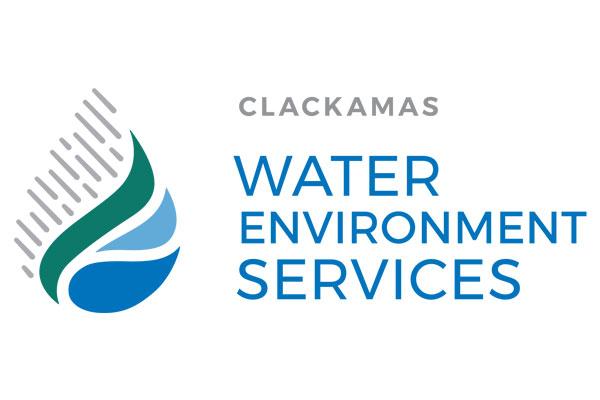Each year, Clackamas Water Environment Services’ (WES) treatment facilities clean more than seven billion gallons of wastewater. WES owns and maintains five wastewater treatment facilities, 23 wastewater pumping stations and more than 360 miles of sewer pipes.
To ensure that wastewater from homes and businesses flows freely to our treatment facilities every day of the year, WES Field Operations crews perform routine maintenance or repairs when needed on our sewer infrastructure. This preventative maintenance includes the cleaning and inspecting of all sewer main lines and other equipment throughout the WES Service Area.
Pipe Cleaning
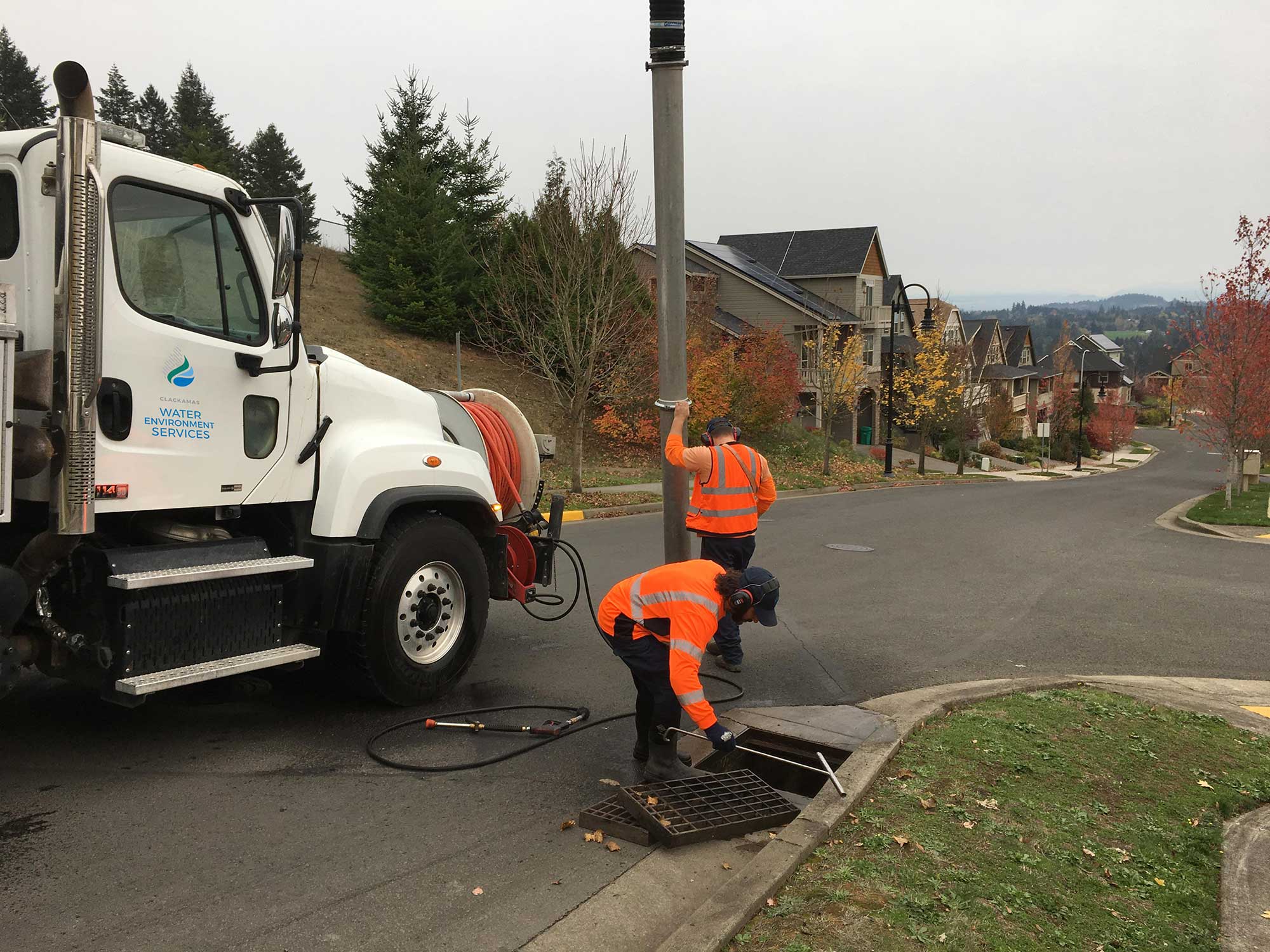
Periodic cleaning of pipelines is necessary to prevent possible stoppages, which can happen if a pipe becomes plugged and prevents the flow of wastewater. Such backups could lead to a Sanitary Sewer Overflow (SSO), which is a spill, release, discharge, or diversion of untreated or partially-treated wastewater. The two most common types of SSOs are basement backups and overflows from manholes.
Stoppages can be caused by a wide variety of debris including, but not limited to:
- buildup of fats, oil and grease (FOG)
- tree roots
- so-called “flushable wipes”
- rags
- paper products
- all items that should not be flushed down the toilet or washed down a sink.
Once inside the pipes, these items often get tangled or start sticking to the insides of the pipes, creating a mass that can eventually clog the pipe.
To prevent such problems, WES crews use water pressure to clean sewer mainlines, often using a jet nozzle and hose which is inserted into a manhole. Water pressure is then used to propel the nozzle and hose up the mainline to the next manhole.
Then, the jet nozzle is slowly pulled back to clean the inside of the mainline and collect and remove debris at the manhole downstream. This process removes accumulations of roots, grease, sludge, and grit that have built up over time. These regular maintenance efforts reduce the possibility of sewer backups and fully restore the capacity of the flow to the sewer mainline.
Pipe Inspection
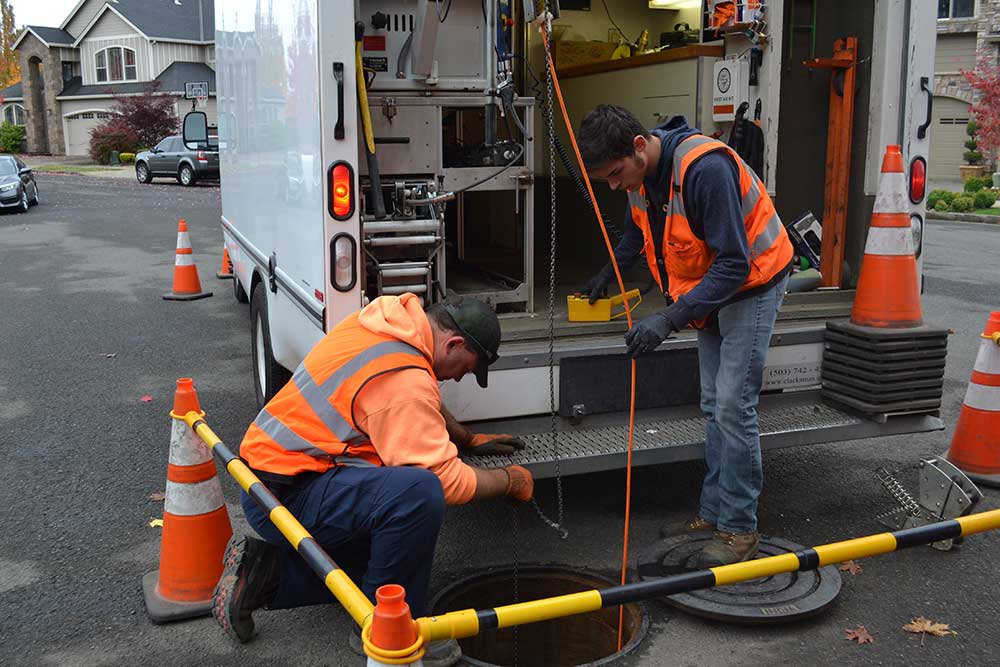
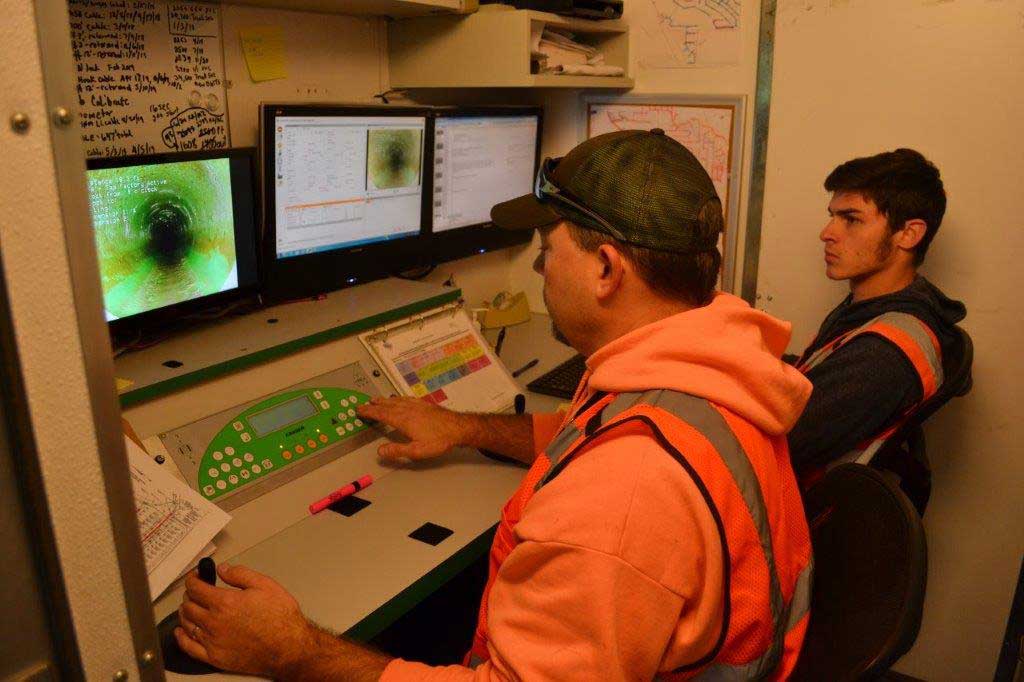
Internal inspection of sanitary sewers using a remote-controlled camera system is one of the most important parts of the preventative maintenance process. The camera is equipped with a rotating head, lights, and zoom functions, which gives WES crew members a very clear view inside the pipes.
The camera, which is attached to a remote-controlled “crawler,” is placed in a manhole, where it then moves down the pipeline and provides a closed-circuit television video feed back to the WES inspector.
Any damages, defects or potential problems inside the pipes are recorded in an asset management system. Information collected from the pipe inspection is used to determine the conditional rating of that pipe segment and helps to indicate if immediate repairs or more extensive maintenance are required. The video information is also used to determine the effectiveness of the pipeline cleaning.
Catch Basin Cleaning and Inspections
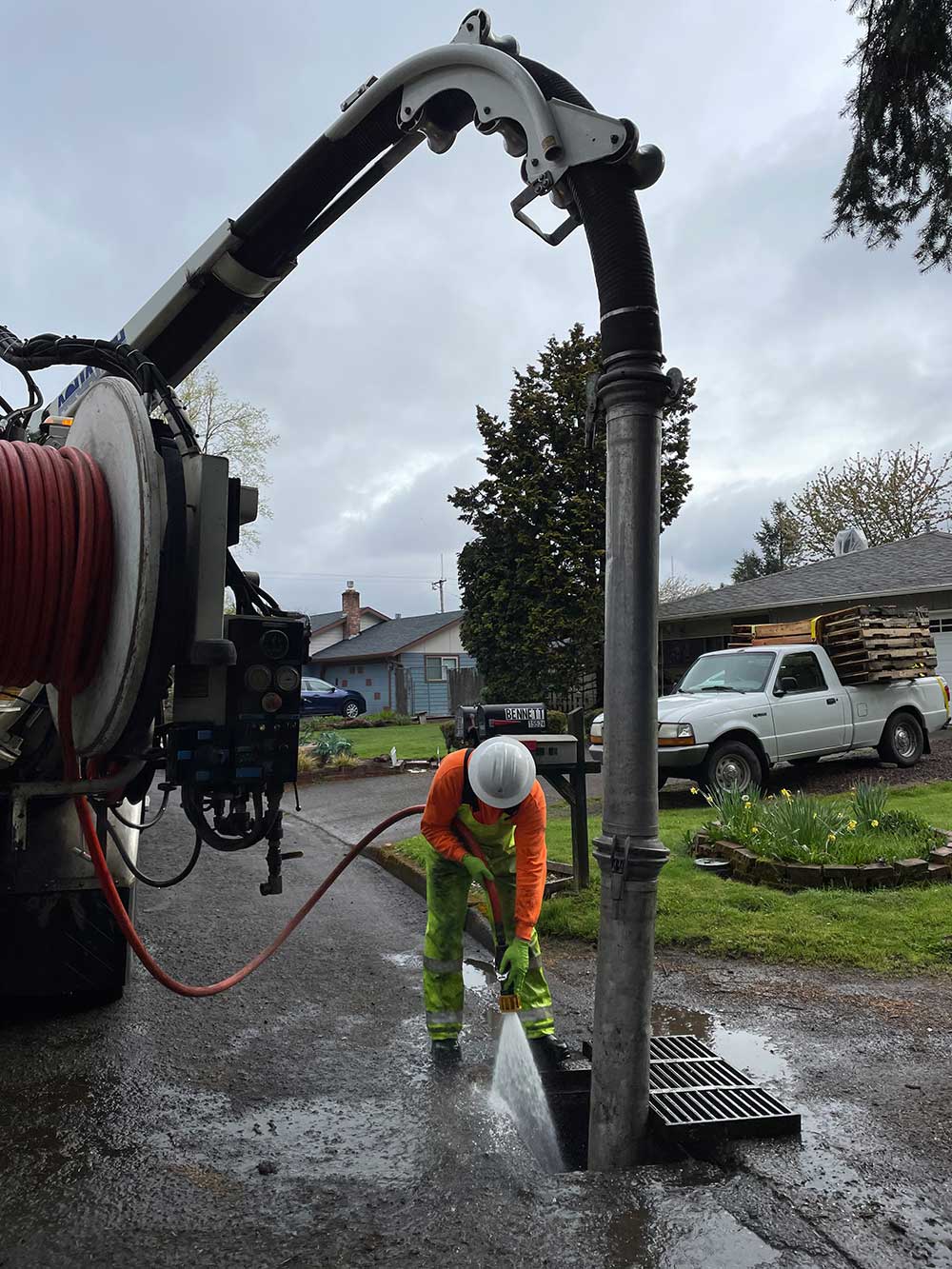
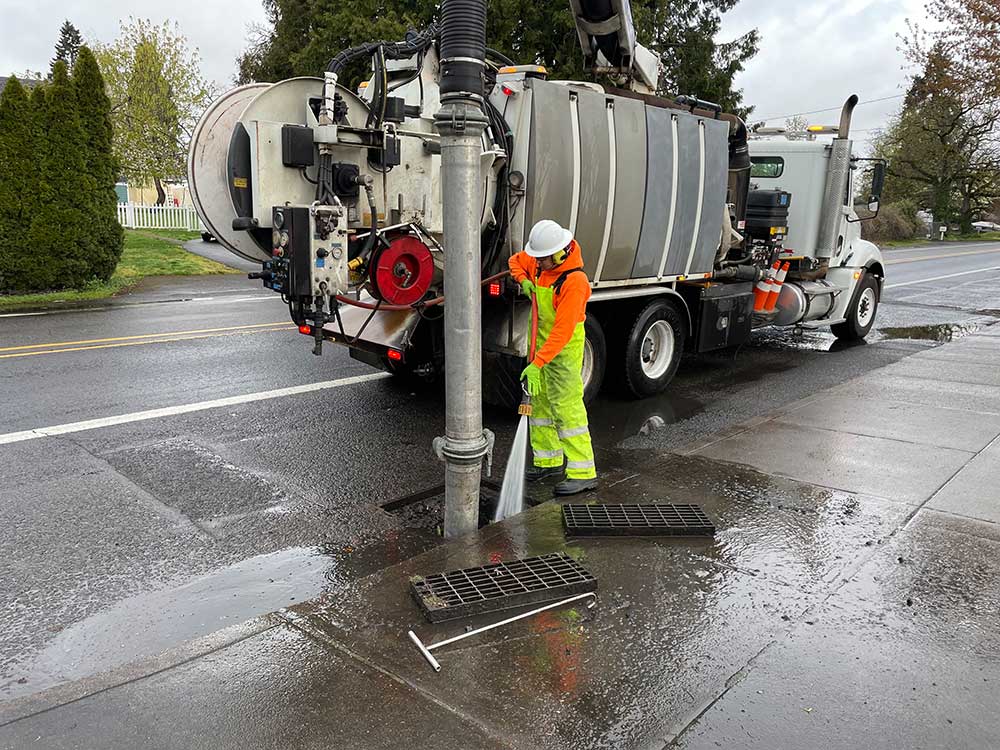
Catch Basins are cleaned on a three-year rotation with some being cleaned more frequently due to previously identified needs. Most catch basins cleaned by WES have large heavy grates and are located along curb lines.
By cleaning road debris and pollutants out of nearly 9000 catch basins, WES can prevent those potential pollutants from reaching our waterways. Field crew complete this task by visiting each catch basin in our system, removing the grates and inspecting the exposed structure.
If the structure is dirty, the crew will use vacuum hoses on our trucks to remove the debris. Once the structures are clean, the grates are placed back on the catch basin and the crew moves down the street to the next location. The contaminated debris removed from these catch basins is taken to a WES facility where it is allowed to dry before being taken to a landfill.
 Translate
Translate






